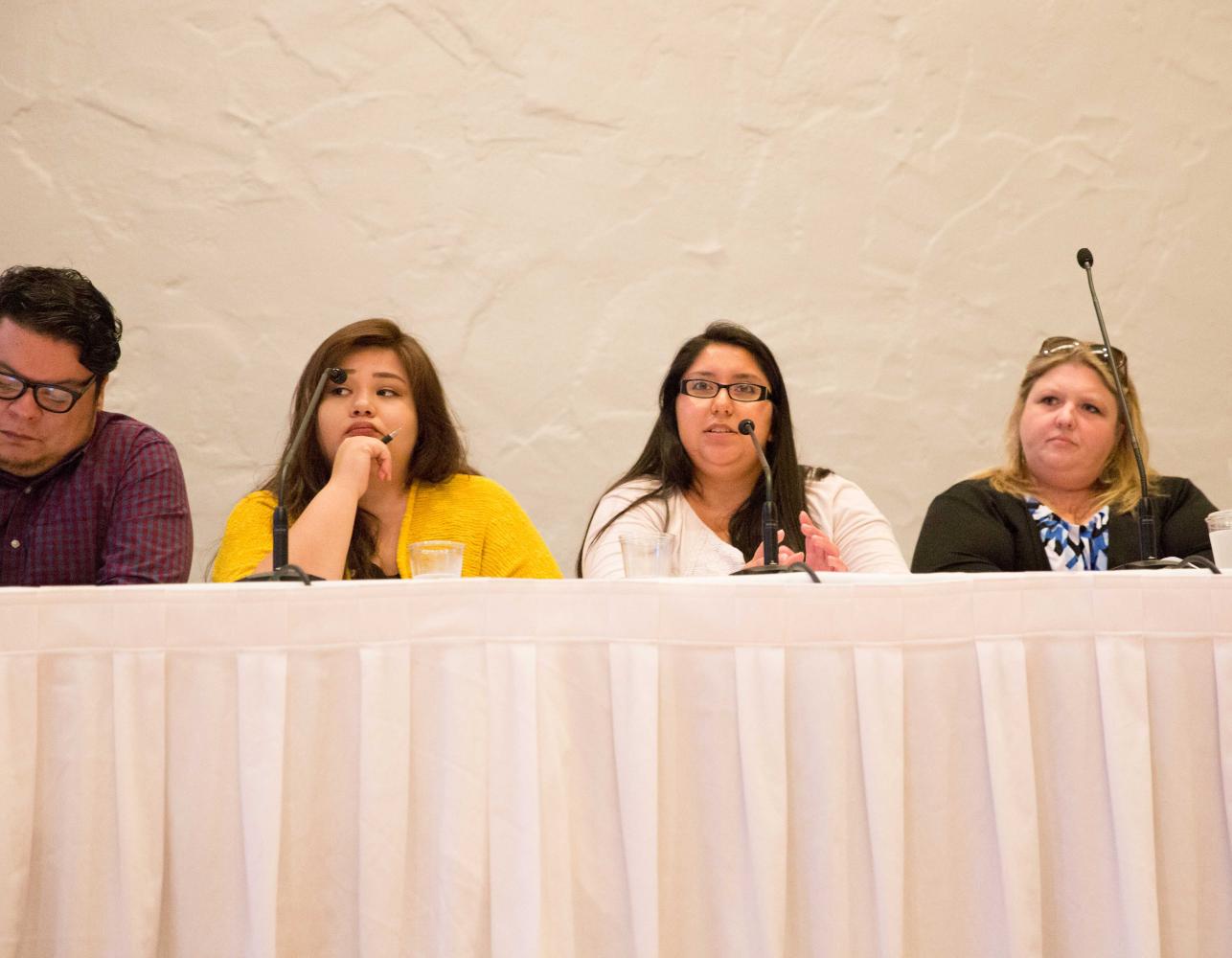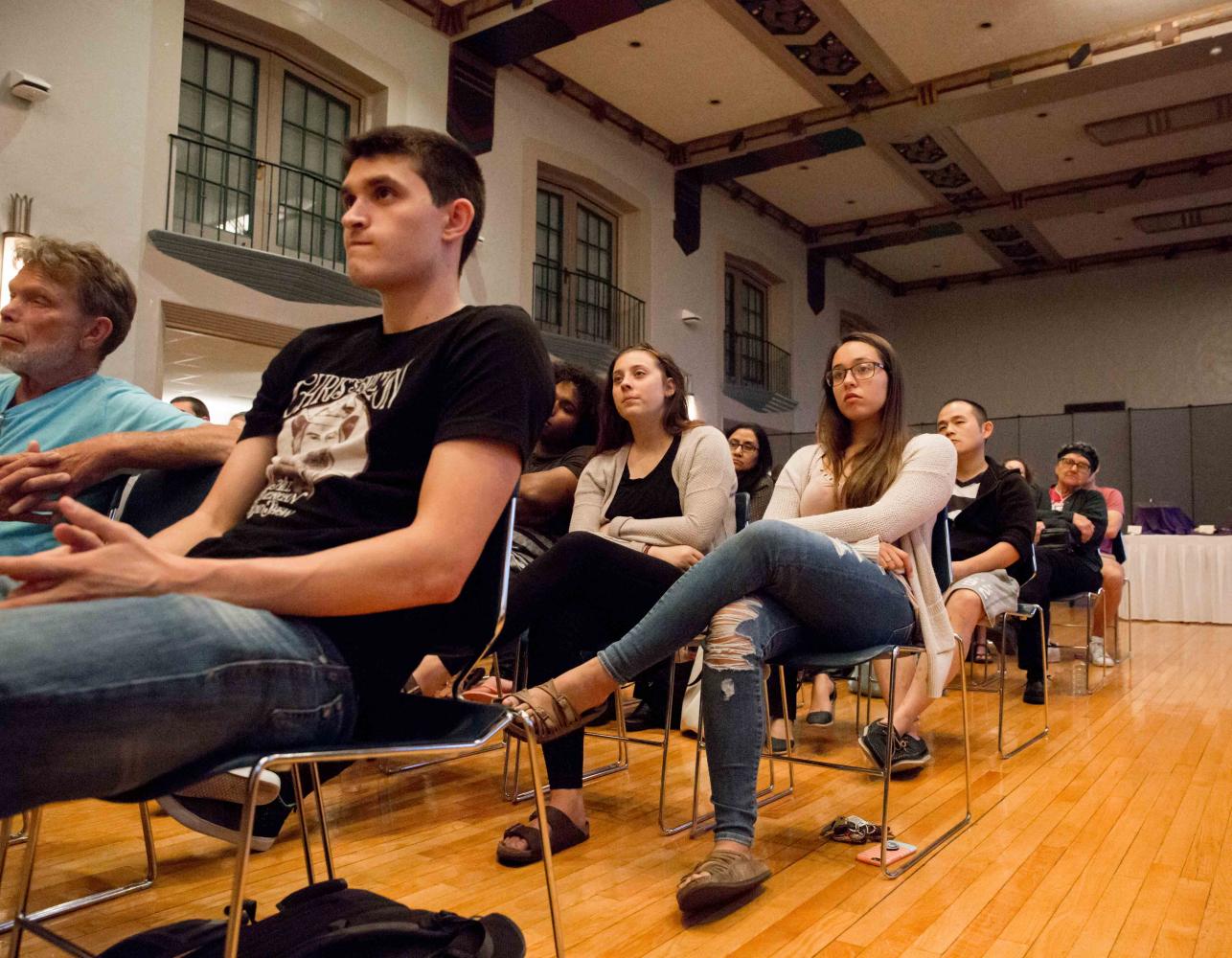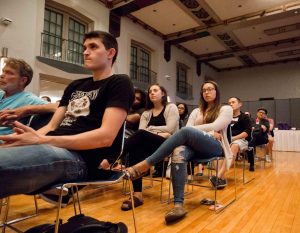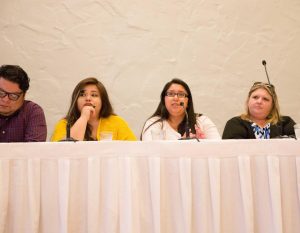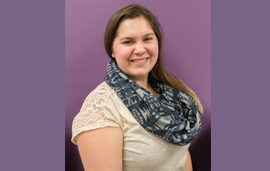DACA and documentation discussed
Sep 25, 2017
“No person is illegal. We’re not contraband, we’re not merchandise, we’re people,” said Ashley Sánchez, a senior psychology and Spanish major and president of Panthers for DREAM Iowa.
Panthers for DREAM Iowa is an extension of DREAM Iowa, an organization that advocates for undocumented immigrants.
Sánchez was one of six speakers at a forum on Tuesday, Sept. 19, entitled Immigration 101: DACA, Documentation and the Importance of Immigrants in Our Communities.
The forum was held at UNI because of President Trump’s recent overturn of DACA (Deferred Action for Childhood Arrivals).
Speakers included UNI students and faculty, as well as members of local community organizations. The speakers recounted the historical and economic background on immigration in the U.S., along with their own personal experiences.
“I’ve been here 23 years now — so has my mom,” said Nilvia Brownson, a DACA recipient and co-founder of DREAM Iowa. “And the fact that we always talk about only me as an American, and we exclude people like my mother, and parents of DREAMers everywhere, is just unfair to me.”
The panelists indicated that there are currently about 11 million undocumented immigrants in the US. 800,000 of them are “DREAMers,” young people who arrived in the U.S. under the age of 16 and qualified for temporary protection from deportation under DACA.
Speaking about the strict regulations required to qualify for DACA, several of the speakers mentioned their goals to see legislation that will benefit a larger range of immigrants.
“[DACA] really, really has narrowed it down to those who the U.S. wanted to keep here,” Sánchez said. “Not those who have lived here and have set up their lives, just who the U.S. wanted to keep as tokens.”
Head of the Economics & Finance Departments Shar Self addressed common misconceptions about the role of immigrants in the U.S. economy.
She stated that no link can be shown between undocumented immigration and unemployment, even in cities where there is a large population of undocumented immigrants.
She described the economy as a “dynamic animal” that is constantly adapting to a growing population.
Lisa Muñoz, an associate professor of social science at Hawkeye Community College, pointed out the rich diversity of the immigrant community in the U.S.: about half of the 11 million undocumented immigrants in the US are from Mexico, but the other half come from a variety of countries worldwide.
“When you hear the word ‘undocumented immigrant,’ what’s the mental image that we get? Who is the person in your head that you see?” Muñoz said. “Because contrary to popular belief, it’s not a monolithic person or picture.”
The conversation also touched on common barriers and hostilities that immigrants face.
“Illegal is not a noun. And so when people say ‘those illegals,’ that doesn’t make any sense,” said Fernando Calderón, assistant professor of history. “And it’s funny because those are the same people that are demanding that immigrants learn proper English.”
The audience consisted largely of students, faculty and members of the Cedar Valley community.
“I don’t think people realize that you don’t have to be an immigrant to be affected by this,” said Sarah Lake, a senior global studies and Spanish major. “There’s a ripple effect associated with this, and when you are talking about 800,000 people, there are so many lives that will be affected by that, even if you don’t realize it.”
Victoria Robinson, associate vice president for educator preparation, pointed out the important role that Iowa educators play in shaping attitudes on immigration rights.
She referenced the fact that schools are included in the category of sensitive locations, where ICE agents usually don’t take actions regarding anyone’s citizenship status.
“You’ll have immigrants in your classroom you’re going to have English language learners and speakers of different languages in your classroom, and you’re going to have to understand where they’re coming from,” said Shaylyn Trenkamp, a sophomore elementary education major in attendance.
“It’s time that we change the rhetoric,” Brownson said. “And start thinking about comprehensive immigration reform.”

